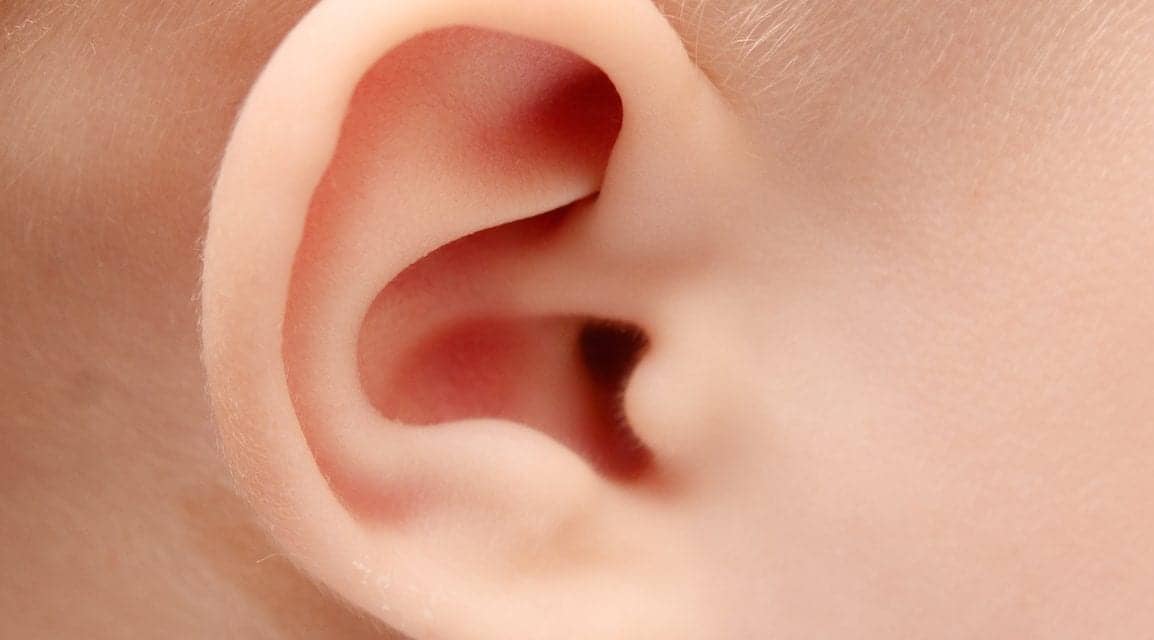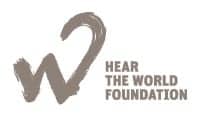A new clinical trial has just received approval in France to assess the safety and efficacy of a new gene therapy drug in children aged between 6 and 31 months with profound hearing loss.
The clinical trial, Audiogene, was developed by a French consortium composed of teams from the Hearing Institute, an Institut Pasteur research center; the ENT Department and Pediatric Audiology Research Center at Necker-Enfants Malades Hospital (AP-HP); Sensorion and Fondation Pour l’Audition. The trial has also been submitted to other European countries and is currently undergoing assessment.
“The launch of the Audiogene clinical trial is a major step forward for deaf children with otoferlin defects and their parents but also brings hope to people with genetic deafness,” says Denis Le Squer, executive director of Fondation Pour l’Audition. “We are very proud that our long-time support to French innovation and to the teams of Prof. Petit at the Hearing Institute, an Institut Pasteur research center, and Prof. Loundon, at the Clinical Center for Research in Pediatric Audiology at AP-HP Necker hospital, translates now into a trial.”
About Audiogene
Audiogene is the first clinical trial in France to test a gene therapy drug, SENS-501, developed by the biotech company Sensorion, to treat children with DFNB9, a form of hereditary deafness caused by mutations in the OTOF gene, which encodes a protein called otoferlin, according to Institut Pasteur. The usual treatment for this form of hearing loss is a bilateral cochlear implant.
The aim of this treatment is to restore hearing. It works by injecting a copy of the normal otoferlin gene into the child’s impaired inner ear. The SENS-501 drug is designed to correct the genetic abnormality in the inner ear cells of children with hearing loss and restore inner ear cell function and hearing in these children.
“The launch of the Audiogene clinical trial is a significant milestone in the development program of SENS-501, a pioneering drug candidate in the field of gene therapies for genetic hearing loss,” says Nawal Ouzren, CEO of Sensorion. “We are delighted to be continuing our collaboration with the team at the Fondation Pour l’Audition, the research teams at the Hearing Institute and the clinical team at the Pediatric Audiology Research Center at Necker-Enfants Malades Hospital (AP-HP), as part of the AUDINNOVE consortium. This consortium, composed of leading stakeholders, is currently one of the few players worldwide capable of bringing about a technological and medical revolution that offers real hope for all children with congenital hearing loss.”
The first step in the clinical trial will be to test two doses of SENS-501 so that the optimal dose can be selected for the rest of the trial.
“This project is incredibly innovative and represents a first in the field, raising high hopes for patients with hearing loss,” says Natalie Loundon, director of the Pediatric Audiology Research Center and a Pediatric Otolaryngologist and Head and Neck Surgeon at Necker-Enfants Malades Hospital (AP-HP), who is the Audiogene clinical trial coordinator investigator. “The project heralds the advent of a revolution in the future treatment of hearing loss patients. For this study, DFNB9 patients will be offered an alternative to cochlear implantation. We are already working on widening the indications to include other causes of hearing loss.”
Further reading: Clinical Trial of Gene Therapy for Genetic Hearing Loss Gets Positive Results
The SENS-501 Gene Therapy Drug
In practice, the SENS-501 gene therapy drug will be directly injected into the inner ear of the child with DFNB9 deafness. The drug is injected into the round window in the inner ear, in a similar way to cochlear implantation surgery. The procedure will be performed under general anesthetic by a lead ENT surgeon. The drug will be administered using an injection system developed in partnership with the company EVEON, so that the injected dose can be measured precisely and the inner ear structures can be preserved.
This gene therapy for hearing loss patients with an otoferlin deficiency was developed as part of the RHU AUDINNOVE project, involving a consortium composed of scientists from the Hearing Institute, an Institut Pasteur research center; physicians from the ENT Department and Pediatric Audiology Research Center at Necker-Enfants Malades Hospital (AP-HP); and teams from Sensorion and Fondation Pour l’Audition
“The Hearing Institute is delighted with this major first, to which its teams, especially those led by Christine Petit and Saaid Safieddine, have made a huge contribution by paving the way for the translation of basic research into therapeutic applications,” says Anne-Lise Giraud, Director of the Hearing Institute, an Institut Pasteur center.





